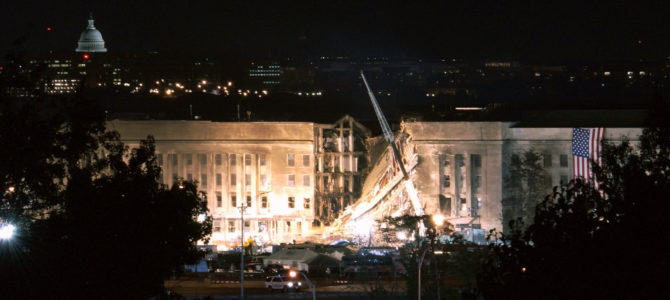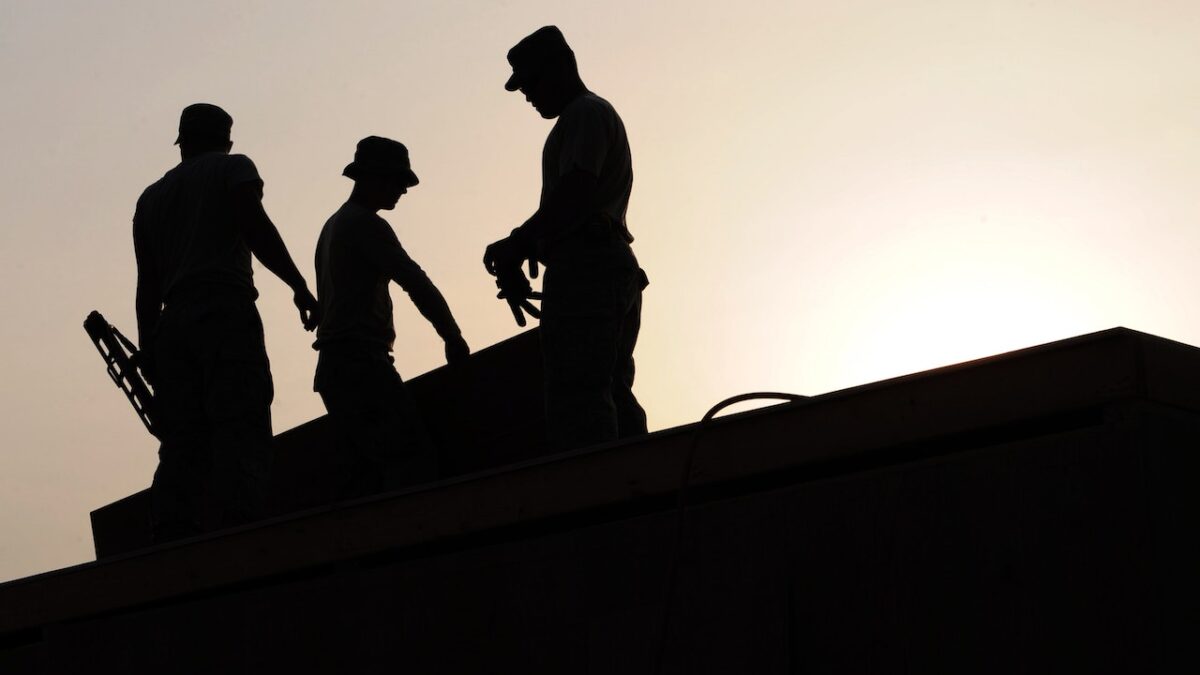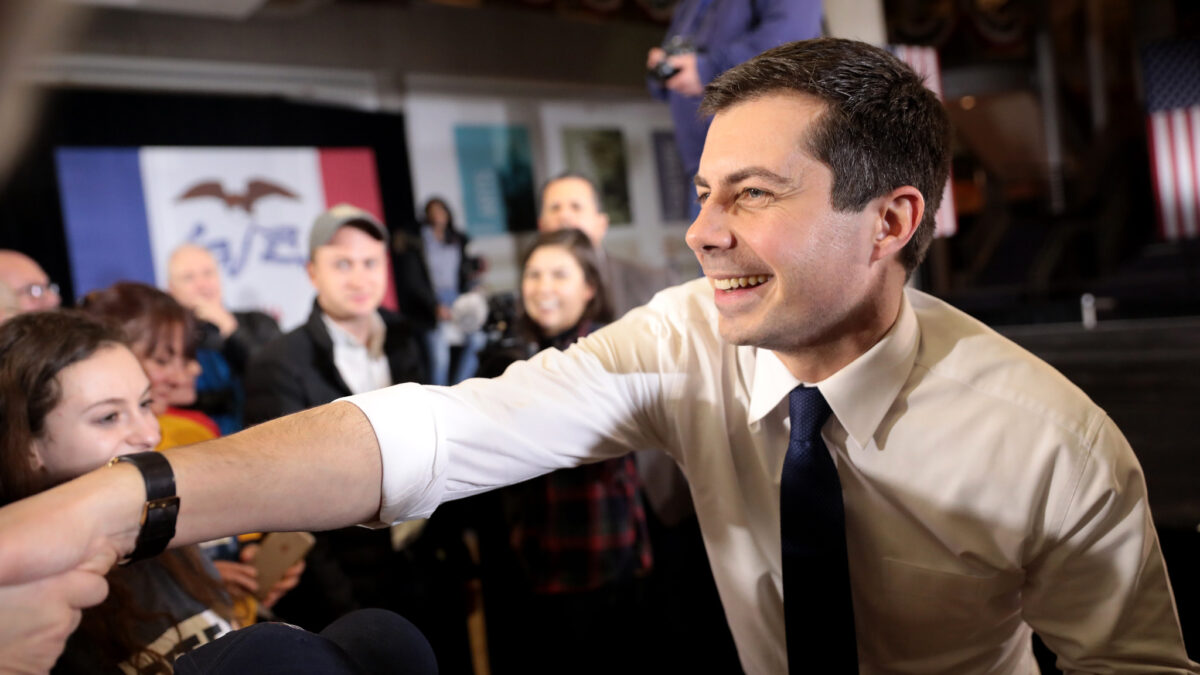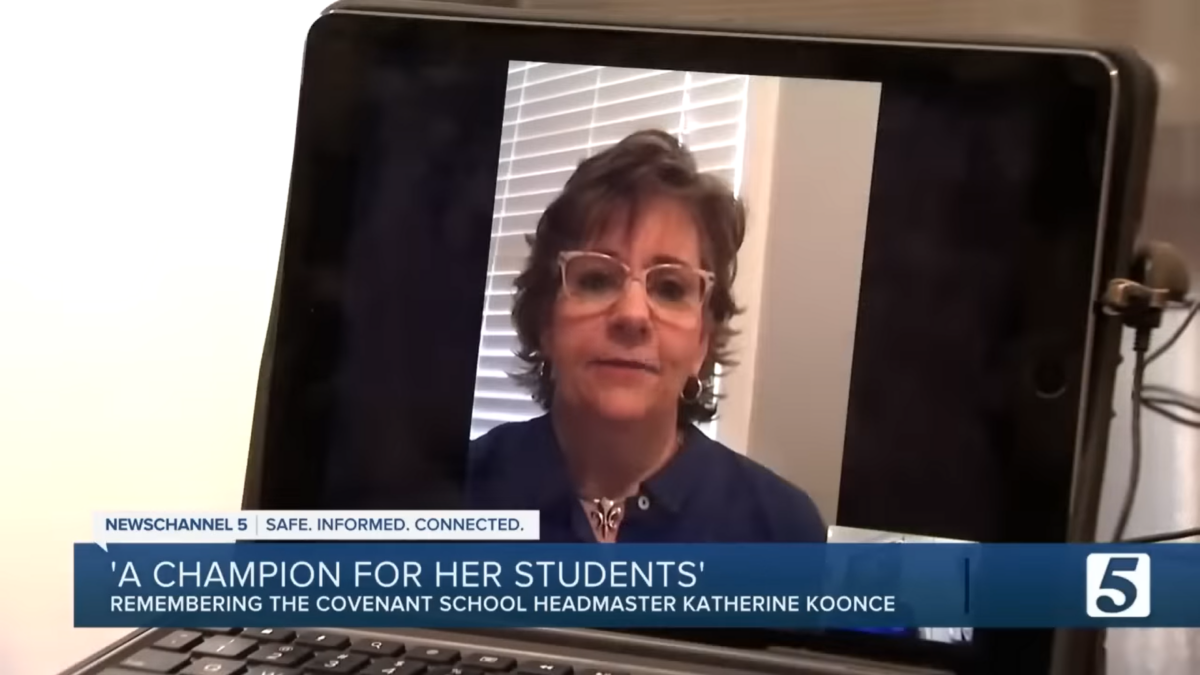
“Where was God on the morning of 9/11?” a CNN reporter asked Gen. Charlie Baldwin in his office not long after the terrorist attacks.
“It wasn’t something I had to make up. It was obvious to me that he was present in the midst of the terror. He revealed himself through the angels of mercy who were present,” Baldwin recalled.
For starters, his own life had been spared. Going to the Pentagon was not a normal part of Baldwin’s daily routine. Based at nearby Bolling Air Force base, Baldwin came to the Pentagon that morning to attend his first senior staff meeting as the new deputy chief of chaplains for the Air Force.
“That meeting started at 9 o’clock,” Baldwin said. “We were about 20 minutes into the daily slide briefing, when someone interrupted. We watched the second plane fly into the World Trade Center Tower on TV,” he recalled. Shocked, they immediately adjourned.
“I had a 10 o’clock meeting on [the] other side of the Pentagon,” Baldwin said, “but stopped to get a latte in a cafeteria,” which is where he was when a guard told him to evacuate.
“So we exited the building,” Baldwin remembered. “That’s when we saw the huge fireball on the other side of the Pentagon.”
Baldwin then realized that his 10 o’clock meeting was located at the site of the black billowing smoke. Had he not stopped to get a latte, he would have been in the wedge that was hit.
He also saw that God had provided an extra number of chaplains to be at the Pentagon that day. “Normally there are probably five or six chaplains in the Pentagon on an average day,” Baldwin explained. “But that particular day, September 11, 2001, it was really an amazing thing. There were about 35 chaplains in the building.”
These additional chaplains were at the Pentagon that morning for different meetings. After being evacuated, they gathered at the casualty collection points to minister to those in need. Unlike local pastors who also arrived, these military chaplains had clearance to the Pentagon, which enabled them to help find survivors. With all three chiefs of chaplains out of town, Baldwin and the two other deputy chiefs of chaplains (Army and Navy) developed a plan.
“We realized we needed to organize this pastoral care moment, because this was not going to be short-term. So we claimed some tent space and then sent many chaplains as far as they could go into the building to look for survivors. Then we developed a plan to organize the chaplains on-site as the wounded came out,” Baldwin explained.
Many of these chaplains were senior officers with administrative responsibilities and no longer involved in day-to-day chaplain duties, but they all returned to their on-the-ground roots.
“We all became the chaplains who were present to help the injured. We went to the casualty collection points and just did, what any chaplain would do, what any pastor would do,” Baldwin explained. “I stepped in and out of the role of organizing the chaplain ministries and just being one.”
One gentleman came up to Baldwin, pointed to the gaping hole in the building, and said, “My wife’s in that room right there. I need to get in there.”
Baldwin talked to him throughout the day, encouraging him not to give up hope. He needed to wait for the truth. It was possible she could have been away from her office. The good news didn’t come, but Baldwin knew from experience that a chaplain’s job was not to give a magic answer but to be a hopeful presence during the waiting.
“The ministry of the site was profound. Some might wonder if those chaplains wanted to be there. Why wouldn’t you want to be there? If you’re a military chaplain, that is where you belong, that is exactly the purpose for which we trained you — to be present with people during difficult times, not to have the magic answers, but to be present.”
The unusually large group of chaplains at the Pentagon on Sept. 11 weren’t the only angels of comfort present. Many members of the military became first responders in the aftermath of the attack.
“One second lieutenant, a young lady, came running over to me. She said ‘Chaplain, what can I do to help?’ I said, ‘Go to that tent and just wipe their brows and you will help.’” She went to one of the collection tents where they were bringing victims, set up cots, and did whatever needed to be done.
“Right beside her was this two-star general, and he did the same thing. ‘I want to help, what can I do?’ And I said, ‘Set up cots and help those medic people get ready so they could help people. Tell them not to be afraid. Tell them God is here. He will take care of them.” Baldwin noted that chaplains offer the same message to troops on the ground, “to be assured that God is with you, you are not alone.”
“These people weren’t the preachers. They were just people who cared. They were God’s hands, his instruments of love and comfort, saying ‘God is with you and God will be with you through this whole thing.’”
These are the stories Baldwin told reporters who asked him, “Where was God on 9/11?”
“The answer was ‘He was present.’ He was in the building when the terrorists struck. He offered healing to those who received it. He offered comfort to those who were dying. And God’s presence was overwhelming and even miraculous in some cases,” Baldwin replied.
Adapted in part from “Stories of Faith and Courage from the War in Iraq and Afghanistan,” by Jane Hampton Cook, John Croushorn, and Jocelyn Green.









